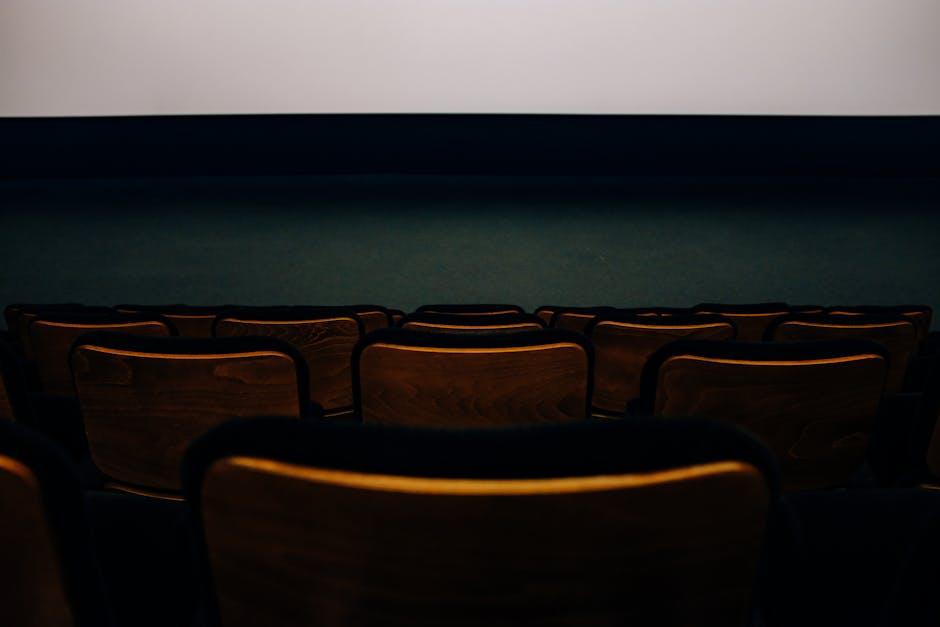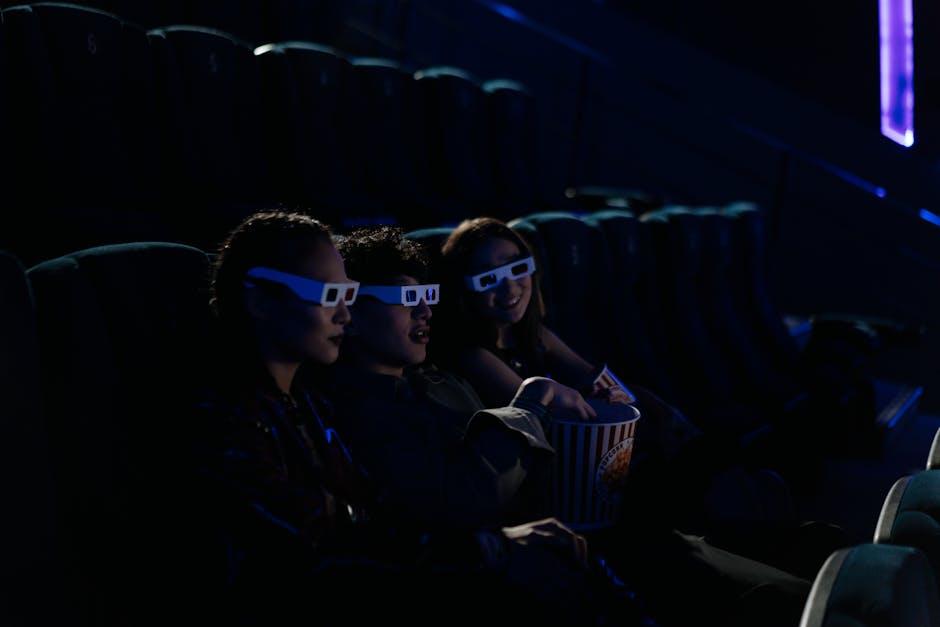In the ever-evolving landscape of cinema, certain films transcend entertainment, becoming cultural touchstones that resonate with audiences across generations. These are the films that weave profound social messages into their narratives, challenging perceptions and igniting conversations. This article delves into reviews of such culturally significant films, offering an analytical exploration of their thematic depth and societal impact. By dissecting the layers of storytelling, character development, and cinematic techniques, we aim to illuminate how these films not only reflect the zeitgeist but also shape it, asserting their place in the pantheon of transformative art. Join us as we navigate the intricate interplay between film and society, and uncover the enduring power of cinema to inspire change.
Examining Cultural Narratives in Cinematic Masterpieces
Delving into the intricate layers of cinema, we find films that not only entertain but also challenge societal norms and provoke thought. These masterpieces serve as mirrors reflecting cultural identities and social issues. “Parasite” by Bong Joon-ho, for instance, is a poignant exploration of class disparity, using dark humor and suspense to expose the economic divide. Similarly, “Moonlight” by Barry Jenkins captures the struggles of identity and sexuality within the African-American community, offering a deeply personal yet universal narrative.
- Representation: Films like “Black Panther” showcase cultural heritage and diversity, redefining mainstream superhero narratives.
- Resistance: “Roma“ by Alfonso Cuarón highlights the power dynamics and social injustices faced by domestic workers in Mexico.
- Reconciliation: “Schindler’s List” provides a harrowing account of the Holocaust, urging viewers to reflect on history and humanity.
These films transcend entertainment, offering profound insights into the human condition. Through their storytelling, they ignite conversations about culture, society, and the very fabric of our lives.

Unpacking Social Commentary Through Film Analysis
In the realm of cinema, films serve as mirrors reflecting societal intricacies and sparking critical dialogue. By delving into the layers of culturally significant films, one can uncover profound social commentaries that resonate beyond the screen. These films often tackle themes such as racial inequality, gender dynamics, and economic disparities, compelling audiences to confront uncomfortable truths and question the status quo.
- Racial Inequality: Films like “Get Out” and “12 Years a Slave” offer poignant critiques on systemic racism, challenging viewers to examine their own biases.
- Gender Dynamics: Works such as “Thelma & Louise” and “Little Women” highlight the struggles and triumphs of women, advocating for gender equality and empowerment.
- Economic Disparities: Movies like “Parasite” and “Sorry We Missed You” explore the widening gap between the rich and the poor, urging society to address the underlying causes of economic injustice.
By analyzing these films, we gain insight into the complexities of human experiences and societal structures. The narratives challenge us to think critically and inspire change, demonstrating the power of cinema as a tool for social reflection and transformation.

Exploring the Intersection of Art and Activism in Cinema
In the realm of cinema, the fusion of art and activism has given rise to films that not only entertain but also challenge societal norms and provoke thought. These culturally significant works serve as powerful catalysts for change, urging audiences to reflect on pressing social issues. Among these impactful films, several stand out for their profound social messages:
- “Do the Right Thing” by Spike Lee: This film delves into the complexities of race relations and systemic inequality, painting a vivid picture of urban life and the simmering tensions that can erupt into violence.
- “The Act of Killing” by Joshua Oppenheimer: A groundbreaking documentary that confronts the perpetrators of the Indonesian mass killings, compelling viewers to grapple with the horrors of impunity and the nature of evil.
- “Parasite” by Bong Joon-ho: A masterful exploration of class disparity and the invisible barriers that divide society, told through a gripping narrative that blurs the lines between genre and reality.
These films, through their innovative storytelling and bold themes, underscore the power of cinema as a tool for social commentary. By weaving together the aesthetic elements of art with the urgent call for activism, they create a space for dialogue and reflection, pushing the boundaries of traditional filmmaking.

Recommendations for Thought-Provoking Films with Lasting Impact
- Parasite: This South Korean masterpiece by Bong Joon-ho offers a gripping narrative that deftly critiques class disparities and societal hierarchies. Its clever blend of genres—thriller, comedy, and drama—creates a unique viewing experience that leaves audiences reflecting on issues of inequality and privilege long after the credits roll.
- 12 Years a Slave: Steve McQueen’s harrowing depiction of Solomon Northup’s true story immerses viewers in the brutal realities of slavery. The film’s unflinching portrayal of human suffering and resilience is a powerful reminder of the historical injustices that continue to shape modern discourse on race and equality.
- Get Out: Jordan Peele’s directorial debut ingeniously uses horror to explore the nuances of racism and cultural appropriation. The film’s sharp social commentary is cleverly embedded within its suspenseful narrative, making it both an entertaining and intellectually stimulating watch.
These films not only entertain but also challenge viewers to confront uncomfortable truths and engage in meaningful conversations about the world around them. Their storytelling and thematic depth ensure they remain relevant and impactful, prompting audiences to reflect on societal issues from new perspectives.

